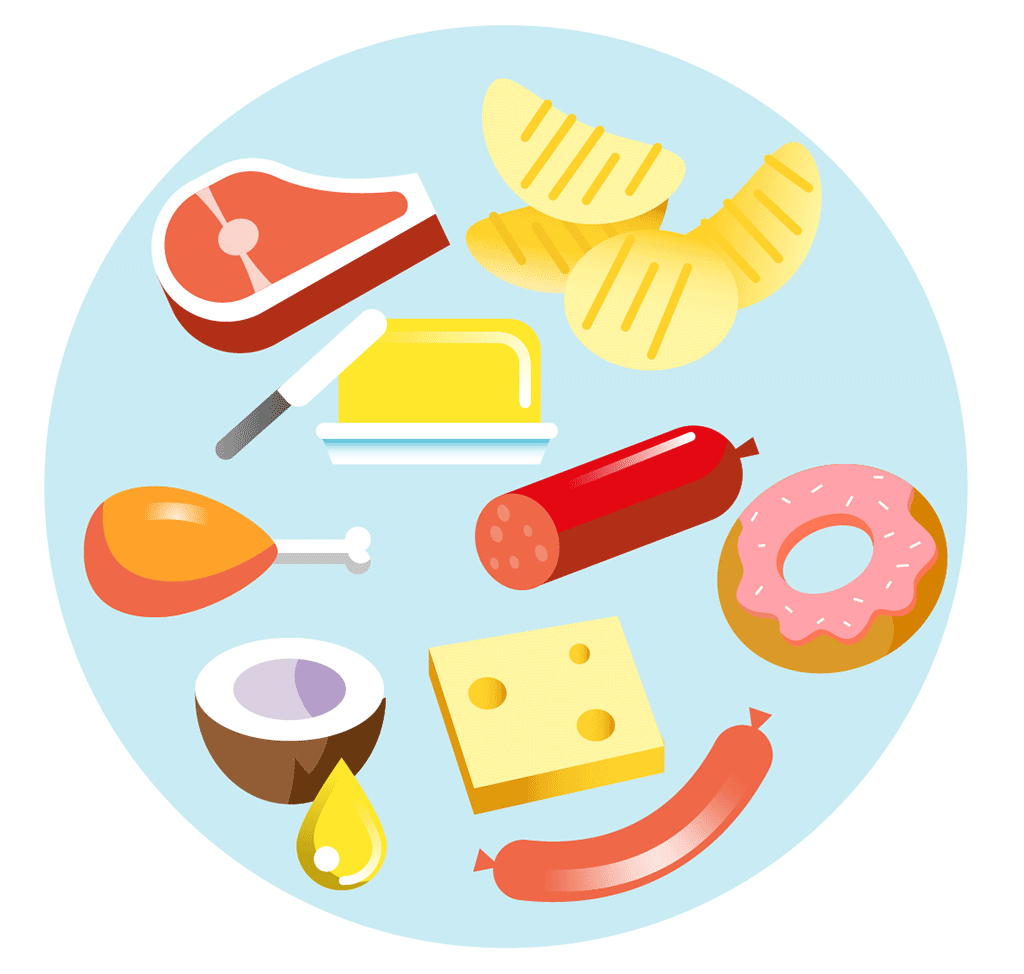-
A Key to Succeed with Carbohydrate Counting

A Key to Succeed With Carbohydrate Counting A healthy eating plan is built on two foundations: Healthy foods and healthy portion sizes. It is possible to consume nutritious food and still struggle with blood glucose management and body weight. It’s not only about what you eat, but how much you eat. It’s very easy to…
-
Counting Carbohydrates in Vegetables
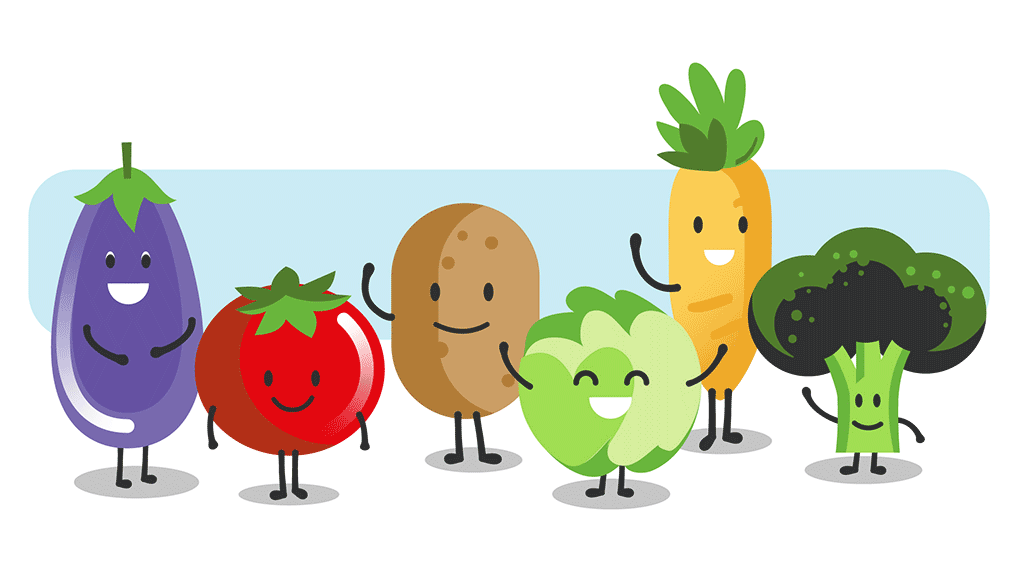
Counting Carbohydrates in Vegetables A diet rich in vegetables can lower blood pressure, reduce the risk of heart disease and stroke, prevent some types of cancer, lower risk of eye and digestive problems, and have a positive effect on blood sugar. All vegetables contain some carbohydrates. Vegetables are categorized as starchy or non starchy. Non…
-
How to Substract Fiber from The Total Amount of Carbohydrates
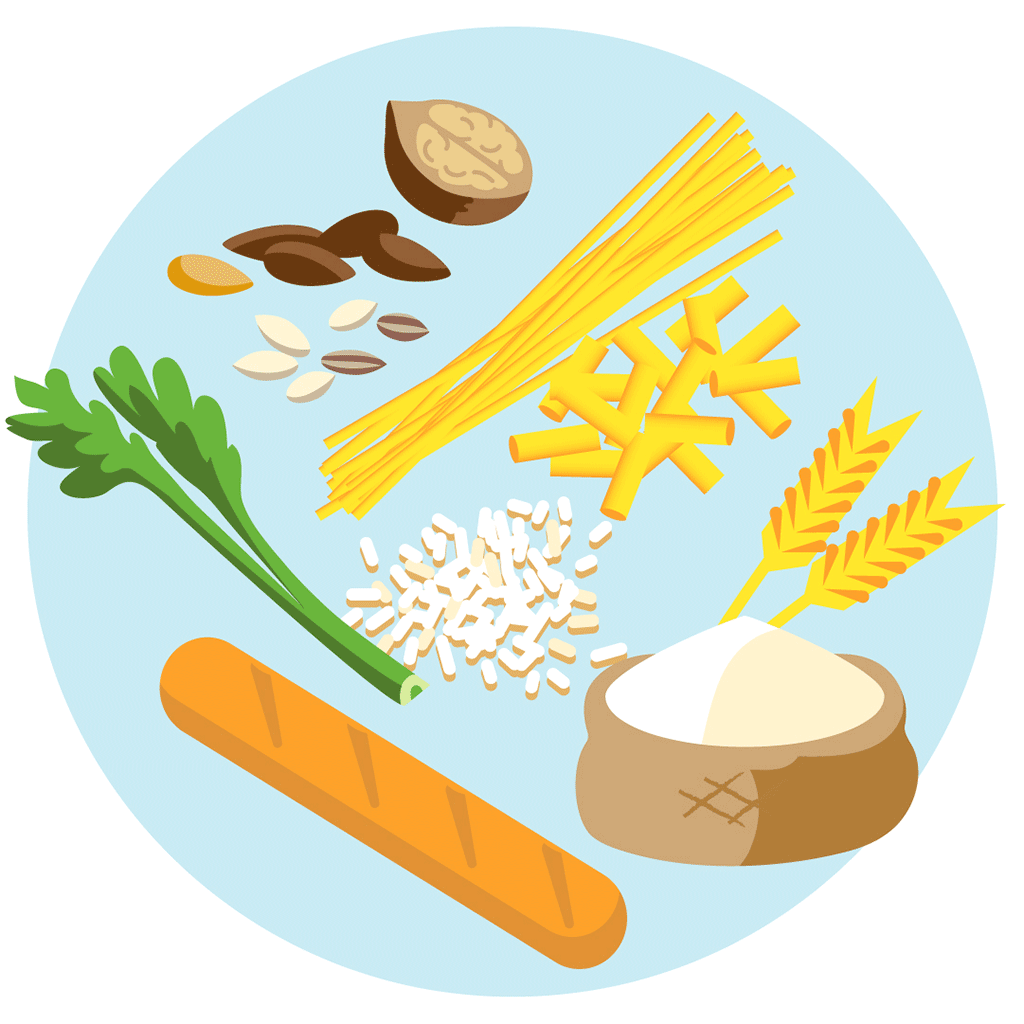
How to Subtract Fiber from Total Amount of Carbohydrates As with sugar, there are many different types of fiber in our foods. We mainly differentiate between two types of fiber; soluble (absorbs water) and insoluble (does not absorb water). The skin of fruits and vegetables are particularly high in insoluble fiber. Fiber, particularly soluble fiber,…
-
Carb Counting and Nutrition Fact Labels
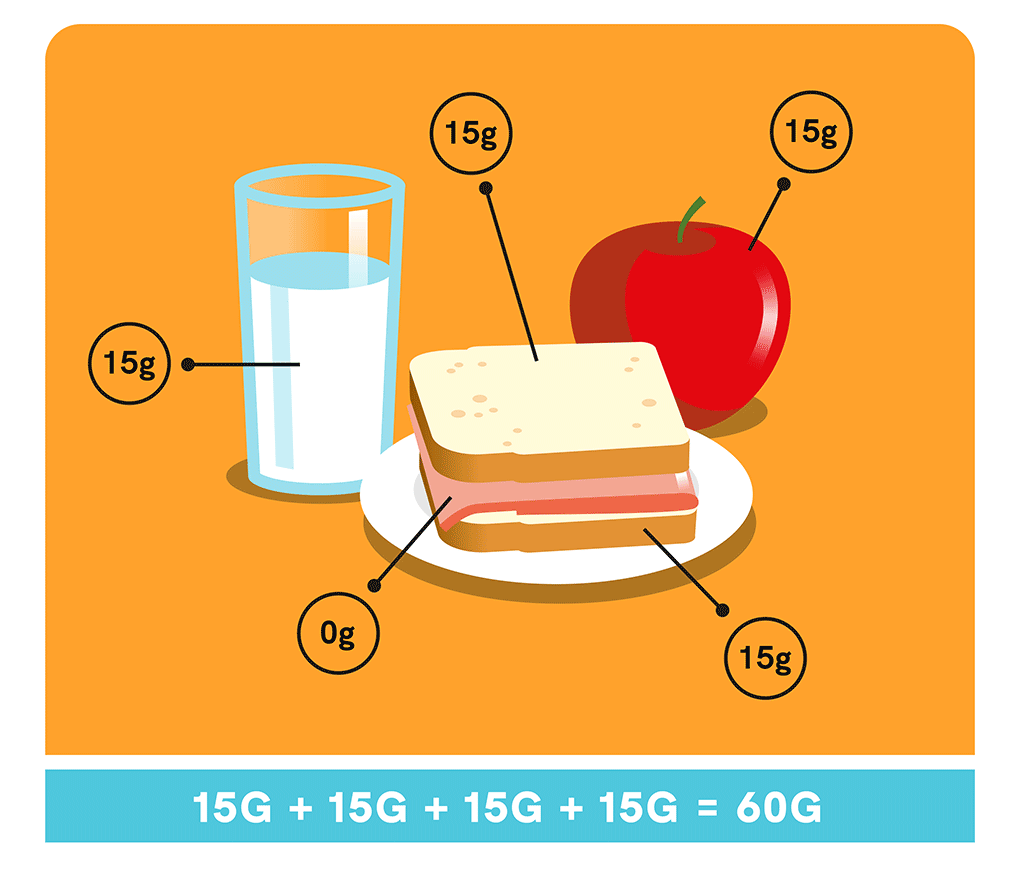
Nutrition Fact Labels Every packaged food in the grocery store is required to have a nutrition fact label. For basic carbohydrate counting you want to focus on: The serving size Grams of total carbohydrates Take a look at the nutrition fact label. This is a nutrition fact label for 1 cup of 1% low fat…
-
What is a Carbohydrate Choice
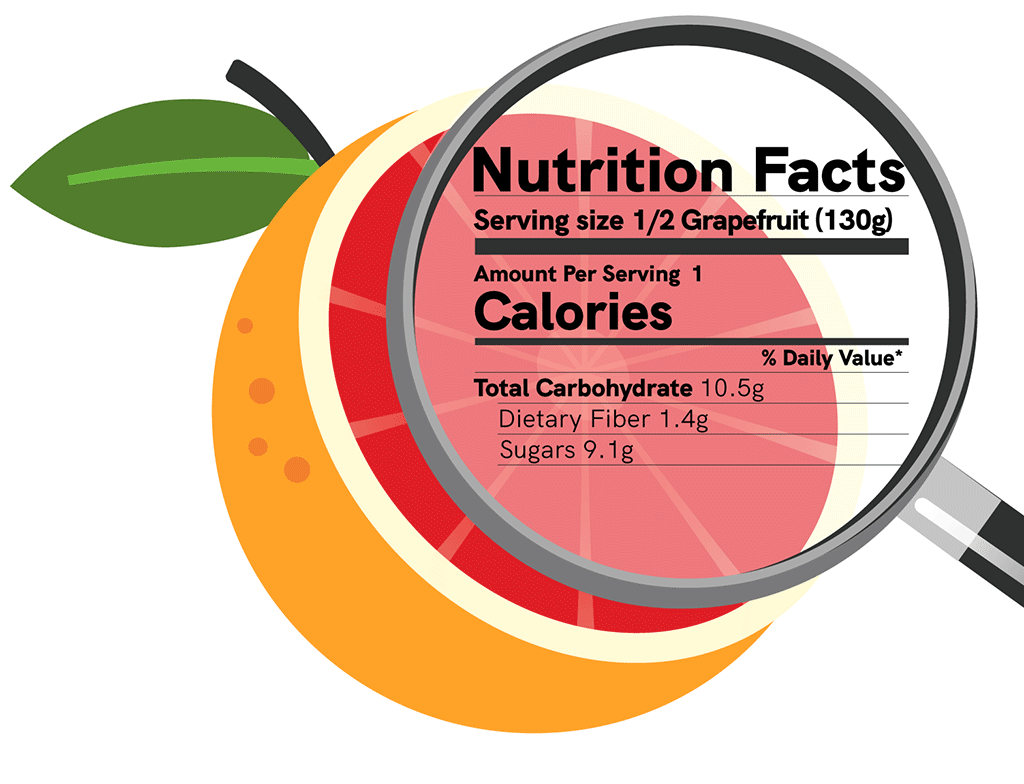
What is a Carb Choice? Typically, people count their carbs in grams. Some people who count carbs find it easier to count carb “choices” rather than grams. One carb choice equals 15 grams of carbohydrates. It equals the carbohydrate amount of one slice of bread. If your carbohydrate goal is 75 grams per meal, that…
-
How does Carbohydrate Counting Work
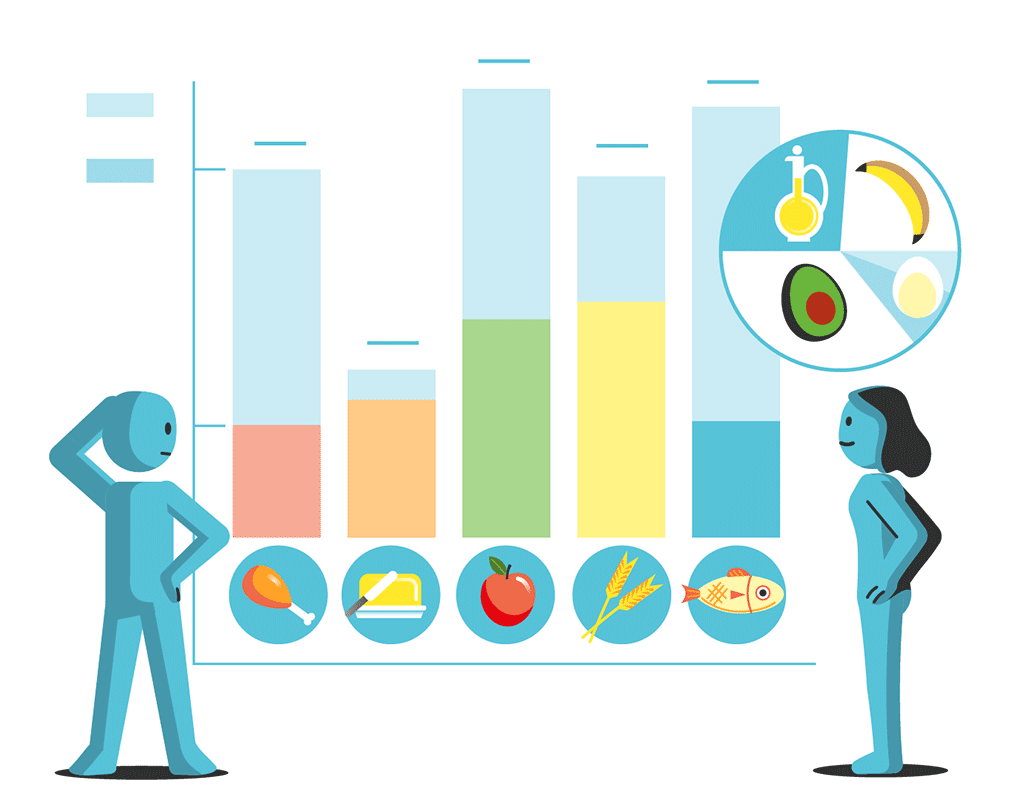
How Does Carbohydrate Counting Work You and your GluCare team will set a goal for the amount of carbohydrates you should eat for each meal and snack throughout the day. Then you will use a variety of tools to choose foods that help you stay within your goals. Through monitoring your blood glucose levels, you…
-
Why Should I count Carbohydrates?
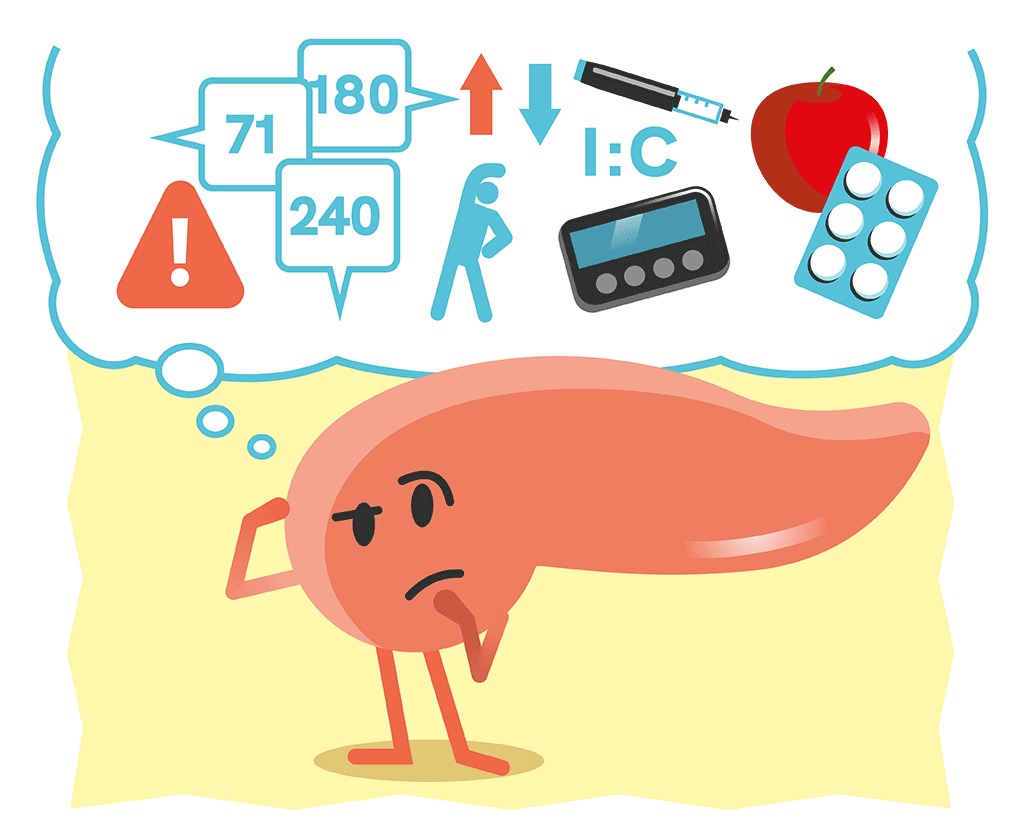
Why should I count carbohydrates? Diabetes interrupts the delicate balance of glucose regulation. If you use insulin, carbohydrate counting will help you manage your blood glucose levels by matching your mealtime insulin dosage to the amount of carbohydrates you are consuming. What is Carbohydrate Counting? Carbohydrate counting (carb counting) means tracking the amount of carbohydrates…
-
What are Active Lifestyle Choices?

What are Active Lifestyle Choices? Lifestyle choices are conscious behavior choices that affect overall health and wellbeing. Healthy lifestyle choices, such as increasing activity lead to improved health and wellbeing. Unhealthy lifestyle choices, such as smoking, leads to a decrease in health and wellbeing. Active lifestyle choices mean creating opportunities for yourself to include more…

